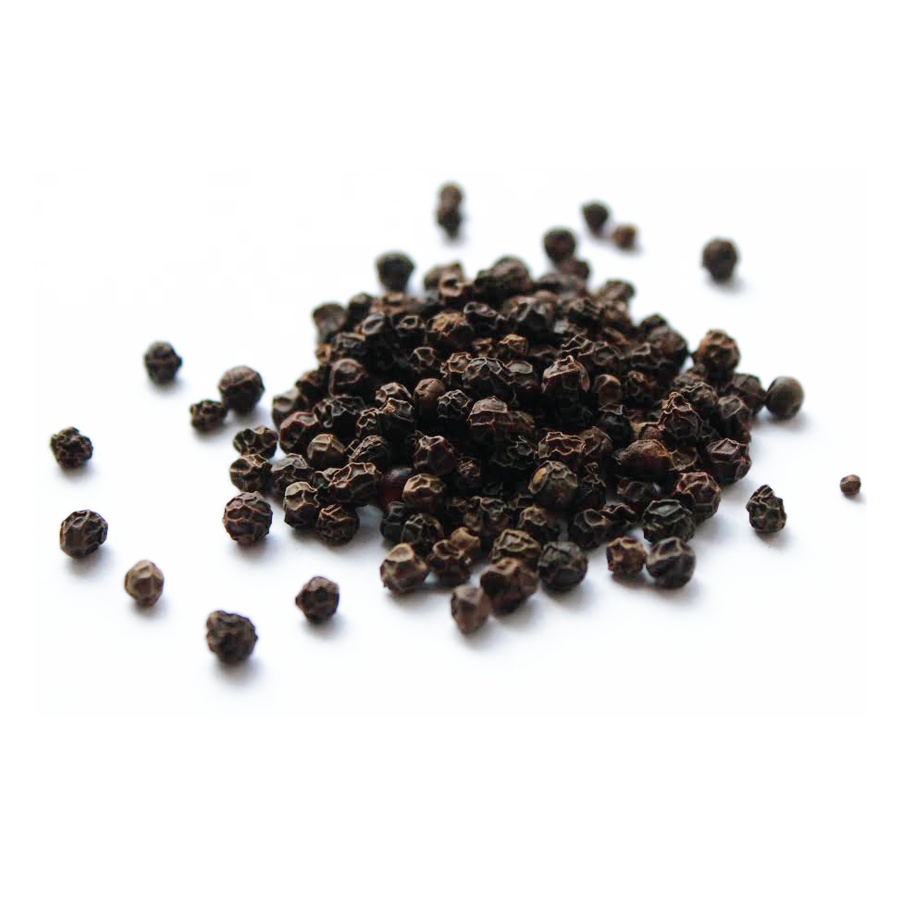Black Pepper
Piper nigrum L. – Piperaceae

Black pepper is a perennial, herbaceous liana. The fruit is a drupe and during ripening the fruit changes color from green to red. Pepper is native to southwestern India, and is now mostly grown in India, Indonesia, Malaysia, Ceylon and Brazil. The medicinal part of the plant is the dried, unripe fruit of cultivated plants.
The main ingredients of pepper are amide alkaloids in a concentration of 5 to 10%. These are piperidine amides with stereoisomeric acids, piperic and cavicinic. The most important alkaloids are piperine and cavicine. Piperine is more prevalent in the pepper fruit, and the hot taste comes from cavicin and it has a resinous consistency. Pepper is a rich source of numerous biologically active substances, such as monoterpenes and sesquiterpenes, as well as other volatile compounds. Pepper fruit also contains essential oil, which is from 1 to 3.5% and mainly consists of monoterpene hydrocarbons.

Black pepper is one of the most widely used spices in the world. Various beneficial effects on human health have been proven by numerous studies, testing on both animals and humans. Piperine is the main bioactive compound of black pepper, from which the immunomodulatory, anticancer, antiasthmatic, hepatoprotective, antiinflammatory, antimycotic effects originate. Also, this plant has a strong antioxidant potential, and has the ability to improve the absorption of some drugs such as rifampicin, sulfadiazine, tetracyclines and phenytoin. In ancient Indian medicine, black pepper is used to control diabetes, to stimulate the CNS, as a digestive tonic, as an aphrodisiac and as an antipyretic, and has a positive effect on lipid status (normalizes cholesterol levels in the blood). This plant is included in many other formulations, because it improves the bioavailability of many active substances, including curcumin. Pepper is known to have numerous health benefits. It is traditionally used in the treatment of pain, shivering, rheumatism, flu, muscle pain, cold, fever, exhaustion, to improve circulation, to improve salivation, to stimulate appetite and to stimulate intestinal peristalsis. It also has broad-spectrum antimicrobial activity (antibacterial and antifungal activity), it can be used to rinse a sore throat. Today, research is increasingly focused on the role of black pepper as an antioxidant for the prevention of degenerative disorders and as an enhancer of the bioavailability of other bioactive substances, including herbal medicines.
